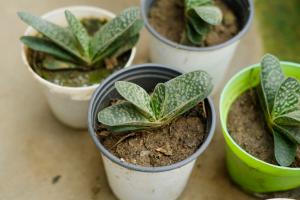Will Planting Ficus Trees Hurt My Pipes?
If you are considering planting ficus trees in your yard, one of the concerns you may have is whether or not they can damage your pipes. While ficus trees can bring beauty and shade to your property, they also have root systems that can grow aggressively, potentially causing problems with any pipes or underground utilities in the area.
Understanding Ficus Roots
Ficus trees have extensive root systems that are designed to absorb water and nutrients from the soil. These roots can reach far and wide, often extending beyond the canopy of the tree itself. While this can make ficus trees great for soil stabilization and erosion control, it can also create hazards if the roots interfere with pipes, foundations, or other structures.
Types of Pipes at Risk
If you have underground pipes on your property, there is a chance that ficus roots could pose a threat. Common types of underground pipes that may be vulnerable to ficus root invasion include:
Water supply lines
Sewer lines
Stormwater drains
Even if your pipes are made of durable materials such as PVC, concrete, or cast iron, they may still be at risk if ficus roots are allowed to grow too close. As roots encounter pipes, they may grow around them, putting pressure on the pipe walls and potentially causing cracks or breaks to occur.
Preventing Problems
While there is no surefire way to prevent ficus roots from growing near your pipes, there are some steps you can take to minimize the risk of damage:
Plant ficus trees a safe distance from any pipes or utilities on your property. A good rule of thumb is to keep the trees at least 10 feet away from any underground structures.
Monitor the growth of your ficus trees and have them pruned regularly. By controlling the size and shape of the tree, you can help prevent the roots from reaching too deep or too close to your pipes.
Consider using root barriers or chemical treatments to deter root growth near your pipes. These options can be costly, but may be worth the investment if you want to ensure the long-term health of your pipes.
When in Doubt, Consult a Professional
If you are unsure if planting ficus trees on your property is a good idea, or if you suspect that your pipes may already be at risk from root damage, it is best to consult with a professional arborist or plumber. These experts can assess the condition of your pipes and trees, and recommend steps to help minimize the risk of damage or disruption.
The Bottom Line
While ficus trees can be a beautiful addition to your landscape, it is important to be aware of the potential risks they may pose to your pipes. With a bit of planning and proactive maintenance, however, you can enjoy the benefits of these trees without putting your plumbing system in jeopardy.

 how many times do yo...
how many times do yo... how many planted tre...
how many planted tre... how many pine trees ...
how many pine trees ... how many pecan trees...
how many pecan trees... how many plants comp...
how many plants comp... how many plants can ...
how many plants can ... how many plants and ...
how many plants and ... how many pepper plan...
how many pepper plan...






























